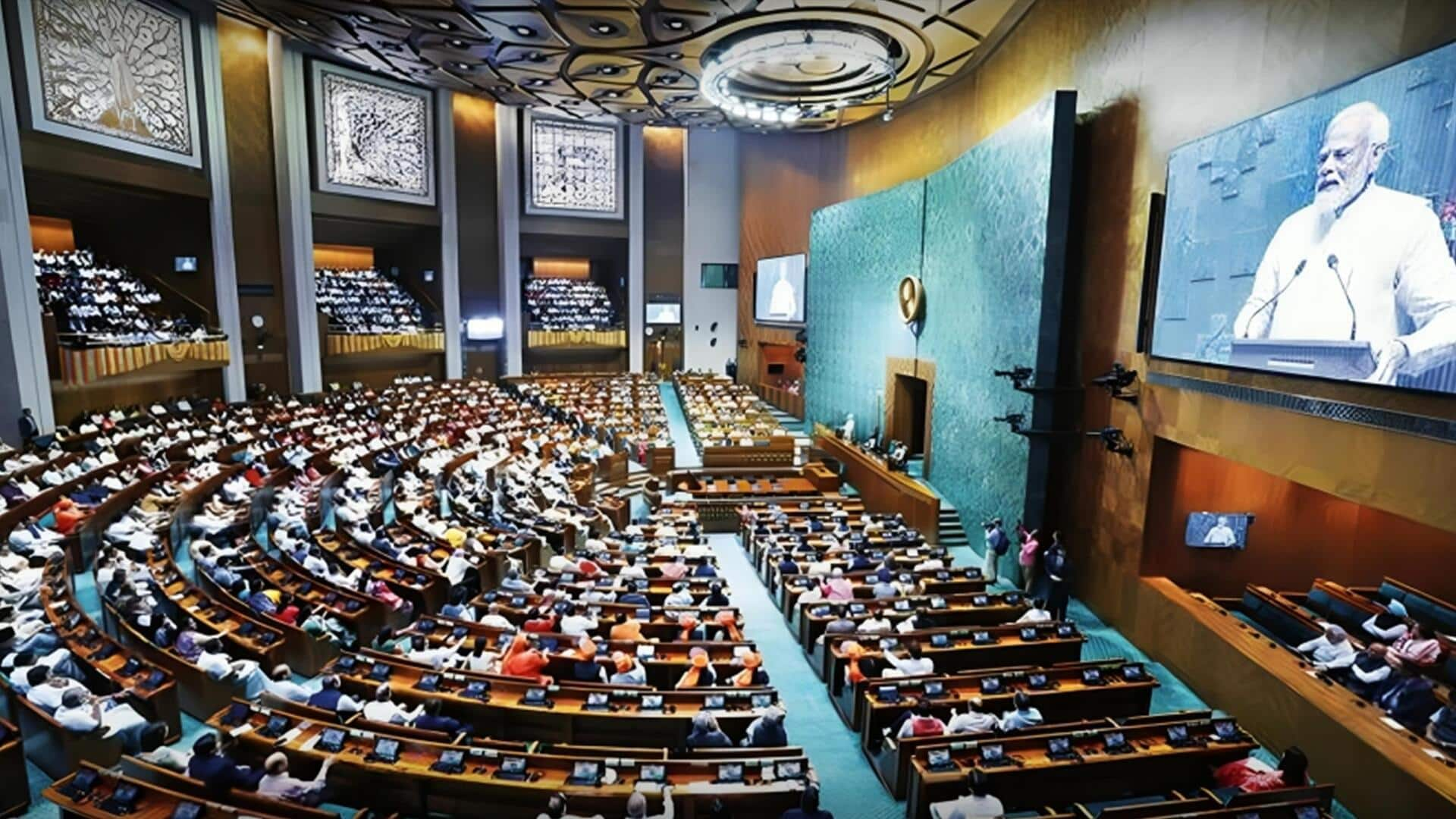
Lok Sabha passes bill to prevent paper leaks and cheating
What's the story
The Lok Sabha, on Tuesday, approved the Public Examinations (Prevention of Unfair Means) Bill, designed to combat practices like leaking exam papers in government recruitment tests. The bill, introduced in the Lower House on Monday, also proposes strict penalties including up to 10 years in prison and a fine up to Rs. 1 crore. The bill will now proceed to the Rajya Sabha and, if approved, be presented to President Droupadi Murmu for her assent before becoming a law.
Context
Why does this story matter?
Currently, there is no specific legislation addressing misconduct or offenses during public examinations conducted by the central government and its agencies. Over the past five years, paper leaks have disrupted the schedules of approximately 1.4 crore applicants vying for just over 1 lakh positions, according to an Indian Express report. The widespread distress among candidates, their families, and subsequent batches of candidates has made exam leaks a significant topic of discussion during recent state election campaigns, the report added.
Twitter Post
Watch: Lok Sabha passes The Public Examinations Bill 2024
#LokSabha passes The Public Examinations (Prevention of Unfair Means) Bill, 2024.
— All India Radio News (@airnewsalerts) February 6, 2024
@DrJitendraSingh | #BudgetSession2024 pic.twitter.com/4rIgZe4PuQ
Strict punishment
Penalties for leaking exam papers and tampering with answer sheets
The bill, introduced by Minister Jitendra Singh, ensures that students taking competitive exams in "good faith" won't be affected. Those involved in leaking exam papers or tampering with answer sheets could face up to 10 years in prison and a Rs. 1 crore fine. The legislation outlines offences such as "leakage of question paper or answer key," "directly or indirectly assisting the candidate in any manner unauthorisedly in the public examination," and "tampering with the computer network."
Prohibits collusion
Bill targets organized gangs, mafia engaged in malpractices
The bill also targets organized gangs, mafia, and individuals engaging in malpractices, including government officials colluding with them. It criminalizes actions such as threatening or obstructing public examination conduct. It also bars people not involved in examination duties or candidates from entering examination premises to disrupt tests. The proposed law prohibits collusion or conspiracy to facilitate unfair means.
Arrests without warrant
Offenses cognizable, non-bailable, and non-compoundable
Offenses under the Public Examinations (Prevention of Unfair Means) Bill will be cognizable, non-bailable, and non-compoundable. This grants police the power to act independently and arrest suspects without a warrant. Moreover, the accused won't be eligible for bail, and the alleged offences can't be resolved through compromise. The bill's primary goal is to promote fairness and transparency in public examinations while discouraging individuals from participating in cheating practices.